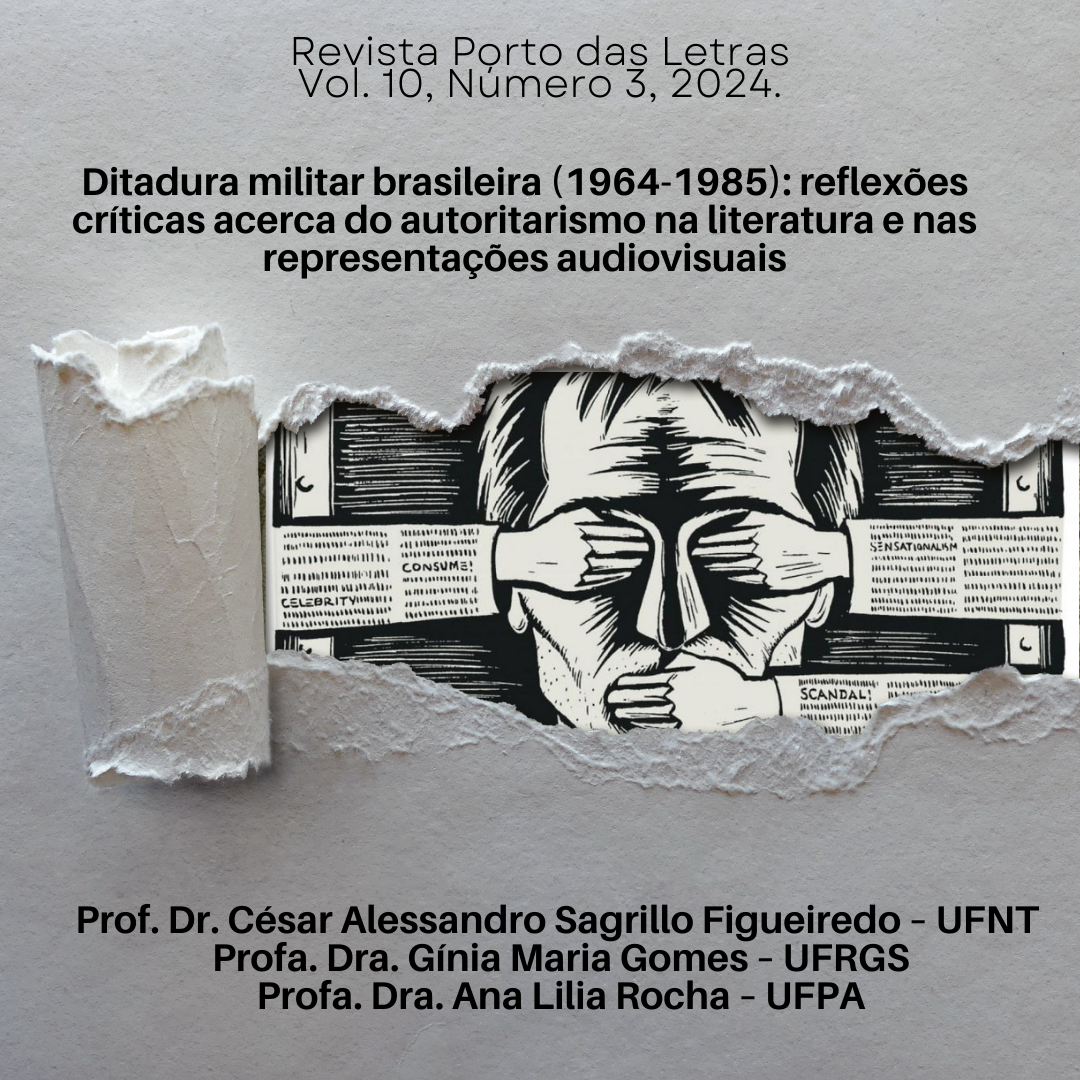Pedagogia do medo, desaparecimento e testemunho em Sobre o que não falamos, de Ana Cristina Braga Martes
DOI:
https://doi.org/10.20873.24.4021Keywords:
literature and dictatorship, brazilian military dictatorship, Testimony, pedagogy of fear, disappearanceAbstract
The aim of this paper is to analyze the novel Sobre o que não falamos (2023), by Ana Martins Braga Martes, based on three thematic axes: the pedagogy of fear, disappearance and testimony. The narrative deals with the childhood of a survivor of the dictatorship who has to deal with the memory of her parents and recover her own story, which is silenced by her grandparents, with whom she lives. Through the passage between childhood and adolescence, the narrator-protagonist Clara takes on the responsibility of narrating her version and offering a counterpoint to the official version of history, written by the agents of dictatorial power. To do this, she listens to her neighbors, who tell other versions of what happened to her parents. For the analysis, among the concepts covered are power agents and disappearance, by Pilar Calveiro (2013) and testimony, by Márcio Seligmann-Silva (2003, 2023). In conclusion, the novel offers a literary elaboration on the institutional silence of the community, which is part of a project of erasure and forgetting policies so that the guilty are not properly held accountable.
References
CALVEIRO, P. Poder e desaparecimento. Trad. Fernando Correa Prado. São Paulo: Boitempo, 2013.
CUNHA, L. A. O Legado da ditadura para a educação brasileira. Educação & Sociedade, v. 35, n. 127, p. 357–377, abr. 2014. Disponível em: https://doi.org/10.1590/S0101-73302014000200002. Acesso em: 20 mar. 2024.
FINAZZI-AGRÒ, E. (Des)memória e catástrofe: considerações sobre a literatura pós-golpe de 1964. Estudos de Literatura Brasileira Contemporânea. Literatura e Ditadura. Brasília, vol. 1, n. 43. p. 179-190, jan.-jun. 2014. Disponível em: http://www.scielo.php?script=sci_arttext&pid=S2316=40182014000100001- &Ing+en&nrm+iso&ting-pt. Acesso em: 20 mar. 2024.
GAGNEBIN, J. M. O preço de uma reconciliação extorquida. In: SAFATLE, Vladimir; TELES, Edson. O que resta da ditadura: a exceção brasileira. São Paulo: Boitempo, 2010.
GASPARI, E. A ditatura escancarada. São Paulo: Companhia das Letras, 2002.
GINZBURG, J. Escritas da tortura. In: SAFATLE, Vladimir; TELES, Edson. O que resta da ditadura: a exceção brasileira. São Paulo: Boitempo, 2010.
GINZBURG, J. O narrador na literatura brasileira contemporânea. Quaderni di letterature iberiche e iberoamericana. n. 2, 2012, p. 199-221. Disponível em: http://riviste.unimi.iy/index.php/tintas. Acesso em: 20 mar. 2024.
GOMES, G. M. À sombra da ditadura: tortura, desaparecimento e exílio em Mulheres que mordem, de Beatriz Leal. In: Narrativas brasileiras contemporâneas: memórias da repressão. Porto Alegre: Polifonia, 2020.
MOTTA, R. P. S. Universidades e cultura na ditadura militar brasileira. Estudios del ISHiR, v. 8, n. 20, p. 92-106, 2018. Disponível em: https://web3.rosario-conicet.gov.ar/ojs/index.php/revistaISHIR/article/view/825. Acesso em: 25 mar. 2024.
SCHWARZ, R. Cultura e política. São Paulo: Paz e Terra, 2009.
Downloads
Published
How to Cite
Issue
Section
License
Os autores concordam com os termos da Declaração de Direito Autoral, que se aplicará a esta submissão caso seja publicada nesta revista (comentários ao editor podem ser incluídos a seguir).

